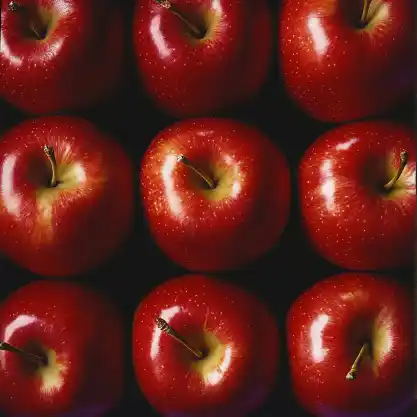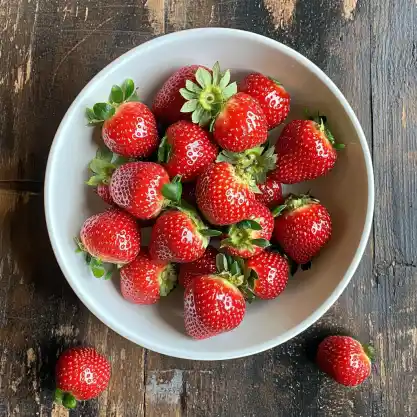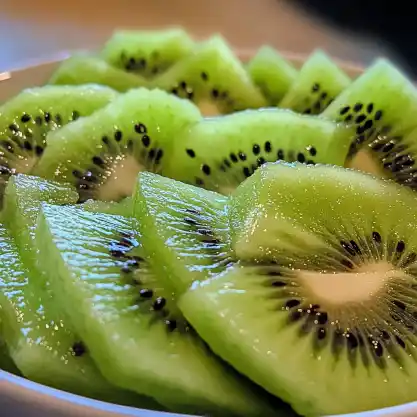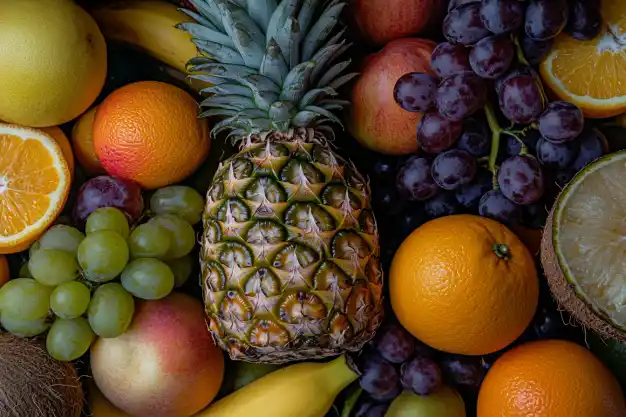Winter gardening offers a unique opportunity to grow hardy fruits that thrive in cooler temperatures. Growing fruit during the winter extends your garden’s productivity and ensures fresh produce all year round. With the right varieties and care, you can enjoy nutritious, delicious fruits even in the colder months. Here’s a guide to the top five fruits to grow in winter and how to cultivate them for a successful winter garden.
1. Oranges
Oranges are among the most popular fruits for winter gardening, particularly in regions with milder winters. They thrive in the cooler season and often produce their best harvests during winter and early spring. Citrus trees, including oranges, are hardy and can withstand some cold if protected properly.

Growing Tips for Oranges
- Soil: Oranges prefer well-draining, slightly acidic soil. If growing in pots, choose a high-quality potting mix.
- Sunlight: Oranges need full sun (at least 6-8 hours daily) to thrive. Place them in a south-facing location if possible.
- Watering: Keep the soil moist but not waterlogged. During winter, reduce watering slightly, as oranges require less in colder months.
- Frost Protection: If temperatures drop below freezing, cover the tree with a frost blanket or move potted orange trees indoors to protect them from damage.
With consistent care, oranges can yield juicy, flavorful fruit perfect for wintertime recipes and fresh juices.
2. Apples
Apples are hardy trees that can tolerate cold, and some varieties even require a period of winter dormancy to produce fruit. Winter apple varieties like ‘Granny Smith’ and ‘Fuji’ can withstand colder temperatures, making them ideal for winter gardening.

Growing Tips for Apples
- Varieties: Choose winter-hardy varieties like ‘Honeycrisp,’ ‘Granny Smith,’ and ‘Fuji’ for best results in colder climates.
- Pruning: Prune apple trees in late winter to remove dead branches and encourage healthy new growth in spring.
- Frost Protection: Cover young apple trees with frost blankets if there’s a risk of severe frost, and consider mulching around the base to insulate roots.
- Watering: Water sparingly during winter, as apple trees require less moisture when dormant.
Growing apples during winter is rewarding, as they’re versatile in cooking, baking, and fresh consumption.
3. Pomegranates
Pomegranates are not only delicious but also nutrient-packed and thrive in cooler temperatures. These fruits can tolerate mild winters, making them a suitable choice for gardeners looking to add something unique to their winter garden. Pomegranate trees are hardy, drought-tolerant, and relatively low-maintenance.

Growing Tips for Pomegranates
- Soil: Pomegranates prefer well-draining, slightly sandy soil with a neutral to slightly acidic pH.
- Sunlight: Full sunlight is crucial, so plant pomegranates in an area with at least 6 hours of direct sunlight daily.
- Watering: While drought-tolerant, young pomegranate trees need consistent watering. Water deeply once every two weeks in winter, adjusting based on rainfall.
- Frost Protection: Pomegranates can handle mild frost, but young trees benefit from being wrapped in burlap or frost cloth during extreme cold snaps.
Growing pomegranates provides a unique winter fruit that’s perfect for salads, sauces, and snacking.
4. Strawberries
Strawberries are a surprising addition to the list of winter fruits, but with the right care, certain varieties can thrive in cooler temperatures. Varieties like ‘Winter Dawn’ are specifically bred to tolerate lower temperatures, allowing gardeners to enjoy fresh strawberries even in winter.

Growing Tips for Strawberries
- Mulching: Use straw or pine mulch around strawberry plants to protect roots from freezing temperatures and retain soil moisture.
- Watering: Water lightly to keep soil moist, as winter strawberries require less water than in the summer growing season.
- Sunlight: Plant strawberries in a sunny spot with 6-8 hours of light to encourage growth, even in winter.
- Winter Maintenance: Trim back dead leaves and protect plants with frost covers if temperatures drop significantly.
Winter strawberries make a delightful treat, adding freshness and sweetness to wintertime dishes.
5. Kiwifruit
Kiwifruit is a hardy vine that can thrive in colder seasons, particularly varieties like ‘Arctic Kiwi,’ which can tolerate lower temperatures. With proper support, kiwifruit plants produce fruit with a unique, refreshing flavor.

Growing Tips for Kiwifruit
- Trellis Support: Kiwifruit plants need a sturdy trellis to support their climbing vines. Ensure the structure can bear the weight of mature vines and fruit.
- Soil and Watering: Kiwifruit prefers well-draining, slightly acidic soil. Water sparingly in winter, ensuring the soil is moist but not waterlogged.
- Frost Protection: Although hardy, kiwifruit vines benefit from frost protection in extreme cold. Cover young plants with burlap or frost blankets to prevent damage.
- Sunlight: Plant kiwifruit in a sunny spot to maximize growth, as they require at least 6 hours of direct sunlight daily.
Growing kiwifruit provides a delicious, exotic addition to your winter fruit selection, perfect for smoothies, desserts, and snacking.
For more details on growing fruits in different seasons, visit this fruit gardening guide.
Benefits of Growing Winter Fruits
Winter fruit gardening comes with numerous benefits:
- Nutritional Value: Fresh, homegrown fruits are nutrient-dense, rich in vitamins and antioxidants that support your immune system during colder months.
- Environmental Impact: By growing your own fruits, you reduce the need for store-bought produce, lowering transportation and packaging waste.
- Extended Growing Season: Winter gardening allows you to enjoy fresh fruits year-round, making the most of your garden space.
Growing fruits in winter offers a sustainable way to access fresh produce, helping you enjoy the benefits of gardening year-round.
For more guidance on the best fruits to grow in winter, check out this helpful winter fruit gardening guide.
FAQs
1. Can I grow winter fruits indoors?
Yes, many winter fruits, such as oranges and strawberries, can be grown indoors in pots with sufficient sunlight and proper care.
2. Do I need to water winter fruits as often as summer fruits?
No, winter fruits generally require less water due to lower evaporation. Water sparingly, keeping the soil slightly moist but not soggy.
3. What’s the best way to protect fruit trees from frost?
Use frost blankets or burlap to cover young fruit trees, and add mulch around the base to insulate roots from freezing temperatures.
Conclusion
Growing fresh fruit in winter brings flavor, nutrition, and beauty to your garden. From juicy oranges and apples to unique choices like kiwifruit, winter fruits are both practical and rewarding to grow. With the right preparation and care, you can enjoy the benefits of fresh fruit year-round. Try adding a few of these winter fruits to your garden and experience the joy of harvesting in every season.

